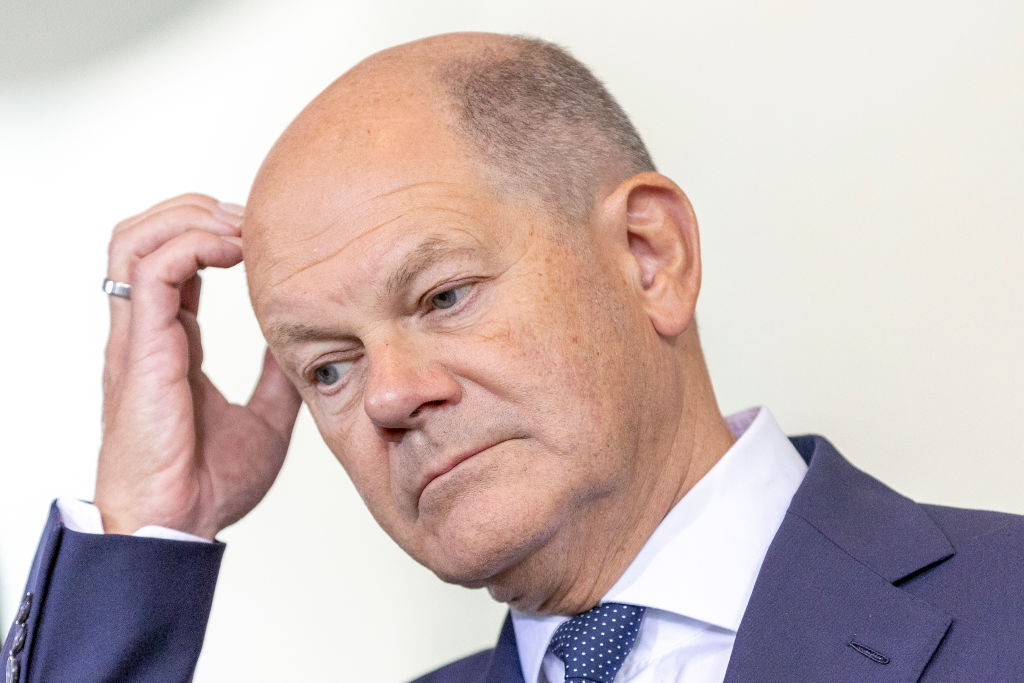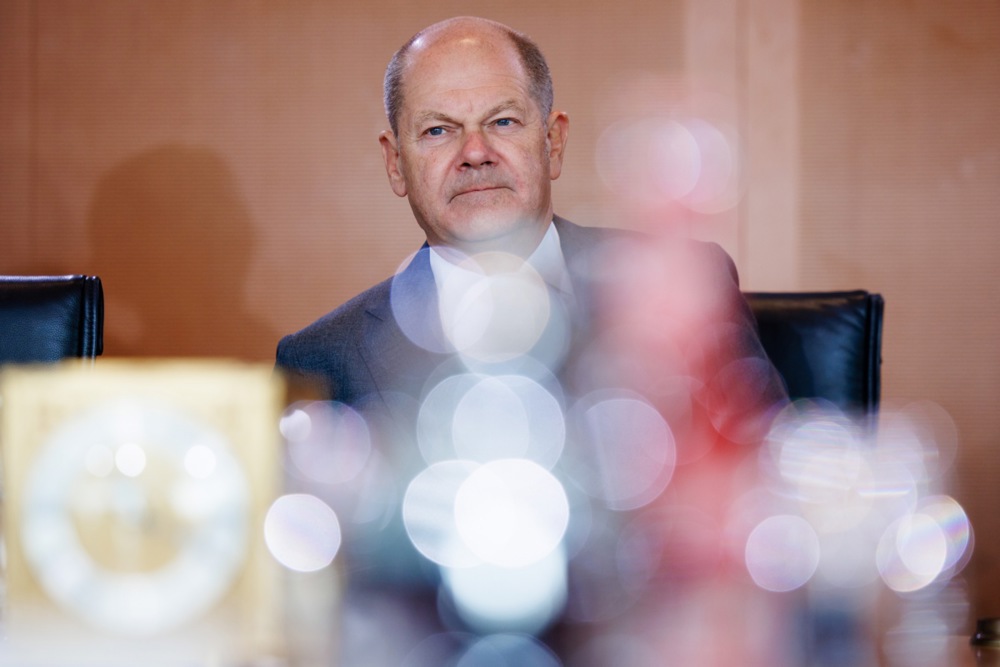“Scholz survives” blared the Brussels press after his party, the Social Democrats (SDP), narrowly beat the populist-right Alternative for Germany (AfD) in recent regional elections in Brandenburg. Brandenburg’s regional election was the last of three in East Germany, of which the AfD won one – in Thuringia – and narrowly lost the second to the Christian Democrats (CDU) – in Saxony, where the SPD cratered. Before the three elections, Scholz’s position was rather weak, with German media organizations asking if he would follow Joe Biden’s example and step down.
The reason why such questions were being raised is because the SPD is in a rotten polling position going into next year, when the next German parliamentary election will occur. The SPD is polling at an anaemic 15 per cent in averages, good for third place – four behind the AfD’s 19 per cent, and less than half of the first-place CDU, which is sitting pretty at 32 per cent. The CDU’s dominance seems unsurpassable: in fact, the entirety of Scholz’s three-way coalition (his SPD plus the libertarian Free Democrats and the Greens) polls at a combined 29 per cent, still behind the centre-right.
Part of this is because in many respects Scholz is an accidental chancellor. In 2021, the CDU was well ahead of the SPD in the run-up to the election. But then the CDU’s chancellor candidate, Armin Laschet, was caught laughing on video during a visit to flood-damaged regions. His callousness dragged him and his party down. Combined with a collapse in Green support, the SPD were able to surge right before the election. Even then, they only narrowly beat the CDU, by just under two points. But it was enough for the chancellery.
Three years later, it is abundantly clear that it was not enough for much more than that. The SPD is starting to panic: while they are used to losing to the CDU, they have never come in third place, especially to the AfD, which they argue is a radical party which should be excluded from political decision-making. Being in third would also put the Right solidly in the driver’s seat for creating a coalition; while the CDU would likely not ally with the AfD (which would, if the current numbers stand, be the only way to feasibly create a two-party coalition), they would have their choice of coalition partners.
Which is why some have made calls for Scholz to be Biden-ed and replaced with someone who could win the second election in a row for the SPD, a feat it has not managed to achieve since 2002. The most mentioned name is Boris Pistorius, the current defence minister, who is relatively well-liked. At least, he is significantly more well-liked than Scholz: a recent poll showed that around 65 percent of Germans think Scholz should not lead the SPD into the next elections, and that 67 percent preferred Pistorius.
These are scary numbers for any incumbent; that they are similar to the numbers Joe Biden was facing before he stepped down must be cold comfort to Scholz. The chancellor was admittedly unlucky in his timing, coming into office after nearly 20 years of Angela Merkel, who managed to put off the effects of her disastrous policies (support for the Nord Stream pipelines and a wide-open border) until after she left office. Any SPD chancellor would have had problems.
But Scholz truly has not been a good chancellor, as even his own party’s voters want him out. He has been dithering, frequently making big grandiose statements and then failing to live up to those claims. Partially, he is restricted due to the nature of his coalition. The Greens are incredibly anti-Russia and anti-China, wishing to do anything for Ukraine. His own SPD is supportive of Ukraine but not as anti-Russia, and his third partner – the libertarian FDP – is interested in cutting the budget no matter what, with the FDP finance minister even recently saying that further aid to Ukraine could only come if it was “secured” in a responsible manner.
Getting anything passed through such a group – which was forced together, as, other than a grand coalition with the CDU, they were Scholz’s only option – is nearly impossible.
However, there is no reason to assume that Pistorius would do significantly better. The fundamental problem for the SPD is the same problem facing social democratic parties across the West: they are utterly unable to deal with the issue of migration.
For their younger voters, doing anything against migration is racist anathema. Their older voters frequently see the spectre of fascism in any migration action as well. Their working-class voters want action, but as the socialists are trapped, those voters look elsewhere, either to the AfD or the newly formed populist-left party of Sahra Wagenknecht (BSW). Scholz has tried to square this circle in recent weeks by instituting temporary border checks, but such an action is akin to putting on a bandage to heal a terminal illness. Border checks only inconvenience commuters and law-abiding citizens and do nothing to really stop migration, especially “temporary” ones. The fact that a migrant just days ago attempted a killing spree – just weeks after a previous stabbing by another – shows that the issue is not going away.
A new SPD leader will not be able to fix this problem. Their coalition with the left-wing Greens will not allow it, and the party’s own internal disputes will not allow it. The socialists, in Germany and throughout Europe, are wedded to the concept of more migration at all costs. And they will ride that commitment to the political grave – no matter who is in charge of the party.





Auto worker ‘peasants’ may force Volkswagen to stay in Germany, downplay China